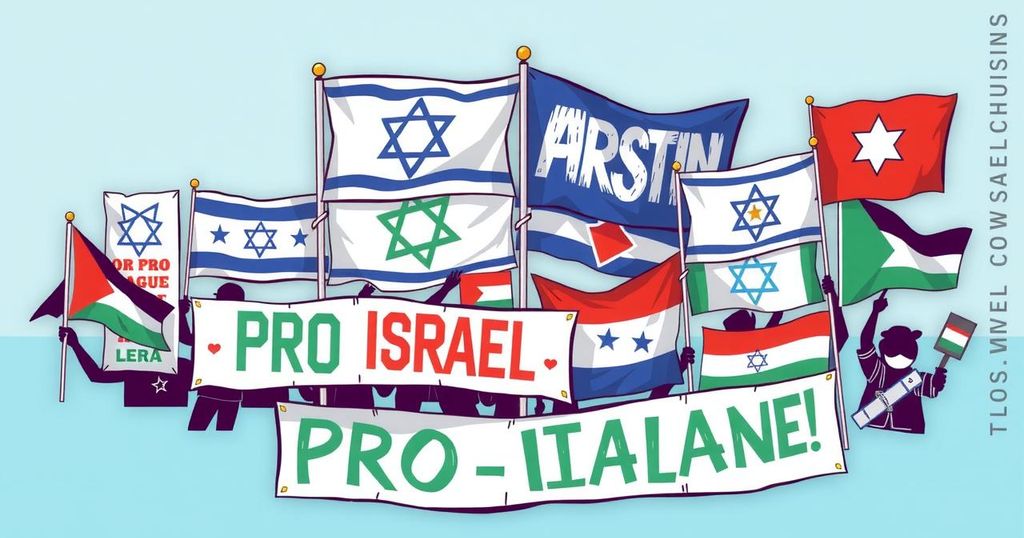Global news
ASIA, CARDOZA - MOORE, DIPLOMACY, FOREIGN POLICY, GAZA CONFLICT, GULF, IRAN, JERUSALEM POST, KUWAIT, LAURIE CARDOZA - MOORE, MIDDLE EAST, MUSLIM BROTHERHOOD, PRO, PROCLAIMING JUSTICE TO THE NATIONS, QATAR, SHEIKH, SHEIKH MOHAMMED BIN ABDULRAHMAN AL THANI, TUCKER CARLSON, TWO-STATE SOLUTION
Leila Ramsay
0 Comments
Criticism of Tucker Carlson’s Alignment with Qatar and Iran by Pro-Israel Activist
Laurie Cardoza-Moore, an activist, criticizes Tucker Carlson for his interview with Qatar’s Prime Minister, claiming it indicates a troubling alignment with antisemitic sentiments. She expresses concern over Carlson’s potential influence by Qatari interests and questions his integrity by suggesting he may have allied with Qatar, a nation known for sponsoring terrorism.
Laurie Cardoza-Moore, a pro-Israel activist and evangelical leader, has voiced her concerns regarding Tucker Carlson’s recent alignment with Qatar and Iran. Cardoza-Moore, who is the founder of Proclaiming Justice to the Nations (PJTN), is particularly critical of Carlson’s interview with Qatar’s Prime Minister, Sheikh Mohammed bin Abdulrahman Al Thani, reported by News.Az and The Jerusalem Post.
In the interview, Sheikh Mohammed articulated the potential repercussions of an attack on Iran’s nuclear facilities, warning that it could jeopardize the Gulf’s water supply and lead to dire consequences for nations such as Qatar, the UAE, and Kuwait. He advocated for diplomatic resolutions rather than military interventions, emphasizing the critical need for preserving life in the region.
Cardoza-Moore expressed her apprehension about Carlson’s platforming of such viewpoints, inferring that his actions reflect a concerning shift towards antisemitism. She further suggested that Carlson may have compromised his principles by aligning with what she perceives as Qatari interests, questioning whether he has “sold his soul to the Muslim Brotherhood”. Her criticisms highlight Qatar’s reputation as a substantial supporter of Islamist terrorism.
In summary, Laurie Cardoza-Moore has raised significant objections regarding Tucker Carlson’s recent interview with Qatar’s Prime Minister, linking it to broader issues of antisemitism and alignment with nations perceived as hostile to Israel. Her concerns underscore the complexities of media discourse on international relations and the potential influence of foreign interests on opinions regarding vital geopolitical matters. These developments highlight an ongoing debate about media personalities and their responsibilities in framing sensitive topics related to foreign policy.
Original Source: news.az




Post Comment